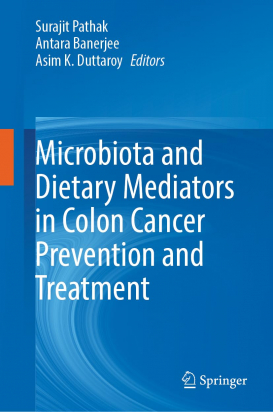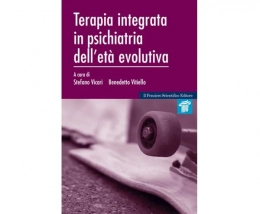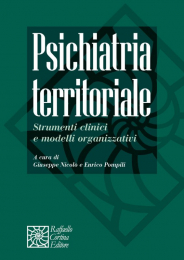Non ci sono recensioni
DA SCONTARE
The book discusses the role of gut microbiome composition in colorectal cancer progression, linking intestinal inflammation, tumorigenesis and anti-cancer immune responses. Chapters delve into various areas, including the mechanisms of action of probiotics and prebiotics (such as Lactobacillus and Bifidobacterium strains, and fructans and galactans, respectively), functional foods such as α-carotene, β-carotene, lutein, β-cryptoxanthin, fucoxanthin, isothiocyanates, flavonoids, probiotics, fibre and omega-3. Lycopene, β-cryptoxanthin, and fucoxanthin. Dietary phytochemicals such as polyphenols (curcumin, gingerol, ferulic acid (FA) and hydroxytyrosol); alkaloids (piperine, and protopine); terpenoids (artemisinin, and astaxanthin); iridoid glycoside (picroside II, and morroniside); and flavonoid (quercetin) on cancer, immune responses, and the gut microbiome. It examines the interaction and influence of prebiotics and probiotics in colorectal cancer treatment, their use in managing chemotherapy-related gastrointestinal problems, and their potential as adjuvants. The book also investigates how these gut microbes are associated with tumor progression and anti-cancer treatment efficacy. This knowledge can be used to develop biomarkers that predict immunotherapy effectiveness and improve treatment outcomes through modulation.
This book provides a comprehensive update on the latest research and clinical applications in the field, offering valuable insights into the complex interplay between probiotics, the gut microbiome, and colorectal cancer. It serves as an invaluable resource for healthcare professionals, researchers, and students seeking to understand this dynamic area of study.
-
Front Matter
Pages i-xiv
-
Gut Microbiota and Its Importance in Health and Disease
- Sujoy Midya, Antara Banerjee, Surajit Pathak, Asim K. Duttaroy
Pages 1-19
-
Recent Innovations in Probiotics and Prebiotics and Gut Health
- Madhan Krishnan, Shyamaladevi Babu, Ahamed Basha Abdul Bari
Pages 21-35
-
The Mechanistic Perspectives of Functional Foods: Probiotics and Prebiotics: A Focus on Colon Cancer and Human Health
- Vijayalakshmi Jayaraman, Soniga Apthi, Liza Datta, Darshee Baxi, Satish Kumar Rajasekharan, Lourduraj Vasanthi et al.
Pages 37-65
-
Health Benefits of Probiotics and Prebiotics Interaction
- Ragala Venkata Nandha, A. R. Heamchandsaravanan, Priyadarshene Kamalanathan, Prabu Dhandapani, Anandan Balakrishnan
Pages 67-84
-
Genetically Engineered Probiotics and Their Potential in Therapeutic Applications
- Sena Davran Bulut, Hasan Ufuk Celebioglu
Pages 85-97
-
Probiotic, Prebiotic, and Gut–Brain Connection in Cancer Development
- K. R. Arjun, D. Mutthuraj, Neha Foferkar, Dhanush Nagendra, R. Mythreyi, S. Umamaheshwari et al.
Pages 99-121
-
The Influence of Prebiotics and Probiotics in Colorectal Cancer Treatment
- Noha A. Ahmed, Rehab G. Khalil, Nour Y. S. Yassin, Osama M. Ahmed
Pages 123-151
-
Role of Dietary Phytochemicals in Gut Dysbiosis: Implications in Colon Cancer Prevention and Treatment
- Vasanth Kanth Thasma LoganathBabu, R. M. Vijay Murali, P. Shriya, Raksa Arun, Mashira Rahman, Harin N. Ganesh et al.
Pages 153-182
-
Probiotics: Immune Responses and Gut Microbiome
- Mrithika Ajay, Abilash Navaneethan, Vasukidevi Ramachandran, Dhanavathy Gnanasampanthapandian, Kanagaraj Palaniyandi
Pages 183-214
-
Probiotics Formulation and Cancer Nanovaccines in Gastrointestinal (GI) Tract Cancer
- Shuvomoy Banerjee, Sakshi Kumari, Debarati Paul, Juni Banerjee, Sudeep Bose
Pages 215-238
-
Gut Microbiome: Associations with Liver and Colon Cancer
- Satya Priya Sharma, Ki Tae Suk
Pages 239-255
-
Prebiotic Fortification: Millets in Building Resilience Against Colon Cancer
- Maitri Chakraborty, Shrishti Madhan, Arikketh Devi
Pages 257-275
-
Probiotics with Preventive and Therapeutic Potential for Colorectal Cancer: An Emphasis on Immunomodulatory and Anticancer Properties
- Taparia Saloni, Jalahalli M. Siddesha, Basalingappa M. Kanthesh, Shivaswamy Umamaheshwari
Pages 277-290
-
Cancer Risk in Alterations of Prebiotics
- Manikkam Rajalakshmi, Periyasamy Vijayalakshmi, Sabapathy Indu
Pages 291-306
-
Priming the Nutrition-Gut-Immuno-Oncology Axis
- Anupama Saha, Naman Kapoor, Navkiran Kaur, Sudeep Bose, Minu Kanchan Kesheri, Shivani Sharda
Pages 307-351
-
Therapeutic Role of Probiotics and Prebiotics in Irritable Bowel Syndrome (IBS)
- Swati Chandrakant Hosvakkal, Kanthesh M. Basalingappa, K. Sumana
Pages 353-367




